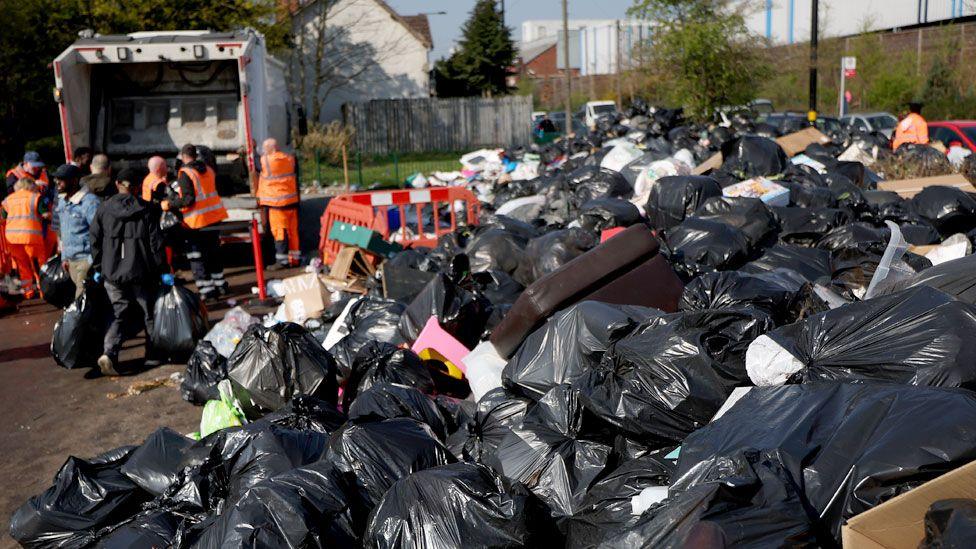More than 12,800 tonnes of rubbish on city streets
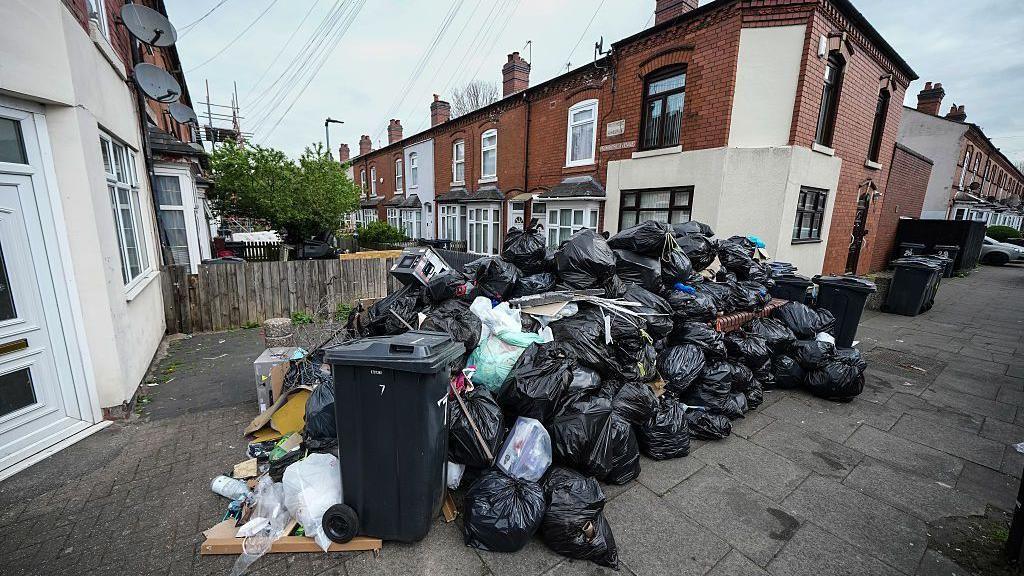
The long-running dispute over pay has led to piles of bin bags and rubbish piling up on streets
- Published
Birmingham City Council says 12,803 tonnes of uncollected waste have accumulated on the streets of the city this week, as an all-out strike by refuse workers continues.
The council said only a small number of waste trucks had been deployed since police scaled down their presence on picket lines last week.
Collections were severely disrupted "due to industrial action by pickets" at three waste depots in the city.
A Unite spokesperson said the actions of its members on the picket line were legitimate and accused the council and government-appointed commissioners of blocking a deal to end the strike.
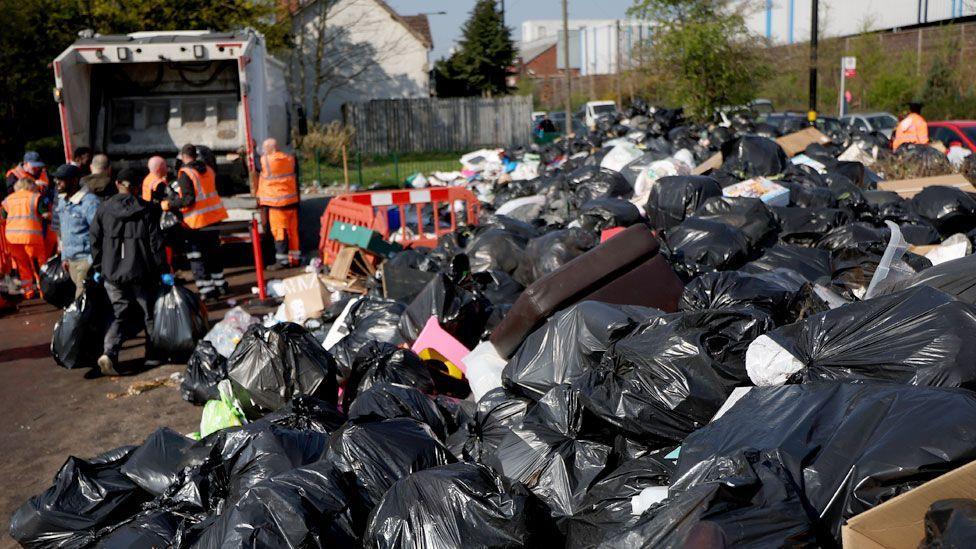
Rubbish collections in the city have been disrupted since January
A council spokesperson previously said that "very few" of its waste lorries had been able to leave two of its waste depots on 15 May due to actions by picket lines.
The BBC has been told a small number of waste trucks have been allowed to leave the depots in order to clear waste deemed to pose a fire risk, mainly at high-rise flats.
All-out strike action by members of the Unite union began on 11 March in a row which focuses on proposed cuts to the pay of bin lorry drivers, which the union said would cost workers £8,000 per year.
Talks aimed at resolving the long-running strike, now in its 11th week, have been taking place between the Labour-run council, the union and conciliation service Acas since the start of May.
Rubbish collections have been disrupted by industrial action since the start of January.
The authority said it was re-grading the roles to avoid further equal pay disputes but that it was "committed to making a revised offer" which did not compromise the council "financially or legally".
The council has paid out over £1bn in equal pay claims over the last two decades after staff in female-dominated roles were historically underpaid in relation to male-dominated positions.
A fresh bill of £750m, later reduced to around £250m, was a key factor in its effective bankruptcy in 2023.
A major incident was declared by the council in March as rubbish began to mount up on the streets, and days later police used powers under the Public Order Act to ensure trucks could leave the depots.
Roger Harmer, leader of Birmingham City Council's Liberal Democrat group, has called for the police to return to allow working crews to leave the depots.
"Mountains of rotting rubbish are once again polluting the streets and it won't be long before the acrid pong becomes unavoidable," he said. "The police are the only ones with the powers to stop strikers from obstructing working crews.
"So I ask Chief Constable Craig Guildford once again: Police the picket lines consistently until the strikes are resolved."
West Midlands Police previously said the threshold for using those powers was no longer being met but they "continue to have a presence" at depots across Birmingham.
Get in touch
Tell us which stories we should cover in Birmingham and the Black Country
Follow BBC Birmingham on BBC Sounds, Facebook, external, X, external and Instagram, external.
Related topics
- Published21 May

- Published8 May
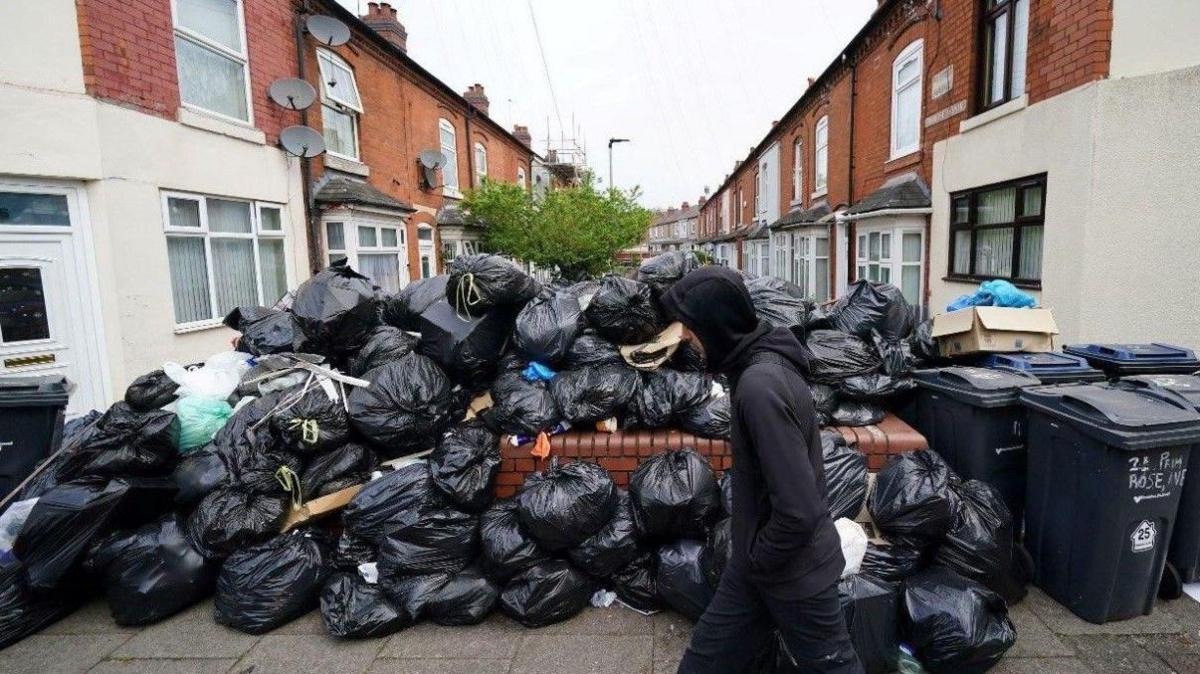
- Published2 May

- Published1 May
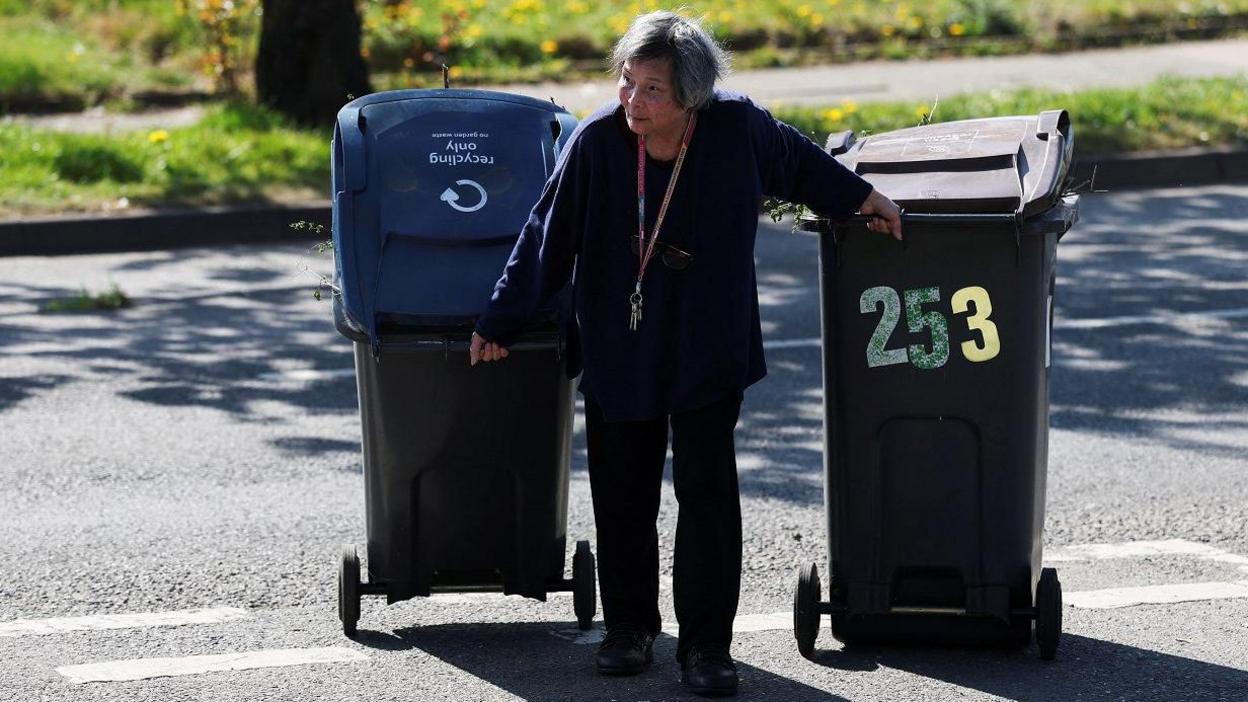
- Published31 March

- Published10 April
